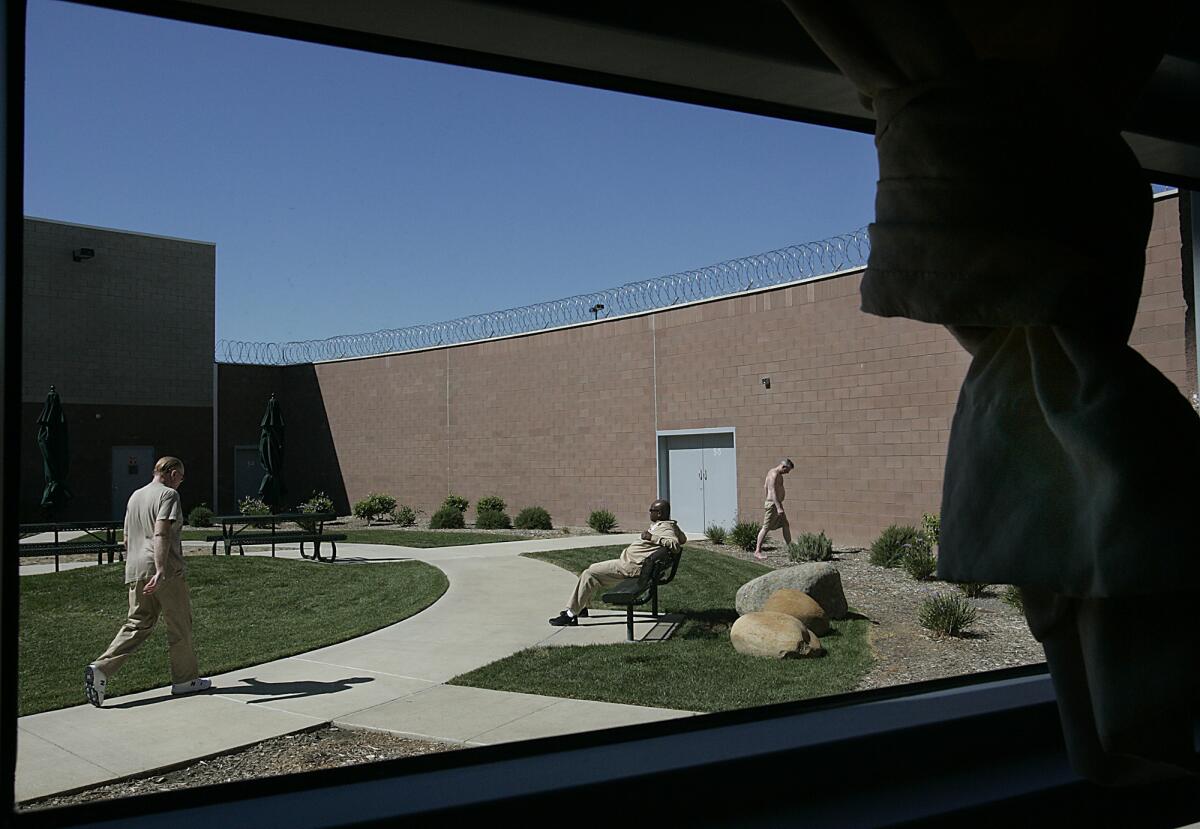State audit faults evaluations of sexually violent predators

Reporting from San Francisco — The state auditor released a report Thursday criticizing the Department of State Hospitals’ evaluation system for determining whether prisoners due for parole or psychiatric patients being held at Coalinga State Hospital are sexually violent predators.
The audit found that evaluations of current and potential “SVPs” are inconsistent, and that there is no standard protocol used to determine whether those being assessed meet the criteria for confinement. The audit also found that evaluators lack clinical supervision and training, and that Coalinga has a “significant backlog” of annual evaluations that violates the rights of patients.
A 1995 law created the sexually violent predator classification, allowing the state to civilly commit to a state mental hospital for an indefinite period those inmates who had completed their prison sentences but met certain criteria. Those include a diagnosis of a mental illness that creates an ongoing risk of sexually predatory behavior.
Most of those deemed to be SVPs are admitted to the hospital in Coalinga and are re-evaluated regularly to determine whether they still meet the legal standard for confinement.
The process has been plagued by problems: A 2008 Times investigation found that numerous contract evaluators were earning more than half a million dollars a year, in some cases for part-time work. The highest earner made $1.5 million.
In response, the Department of Mental Health -- now the Department of State Hospitals -- moved to bring many evaluations in house and lower the pay for contractors.
However, a separate controversy was playing out: A handbook containing a detailed protocol for evaluators was deemed invalid by the Office of Administrative Law, which determined that certain provisions met the definition of “regulations” but had not gone through the required regulatory process.
Rather than start that process, the Department of Mental Health in 2009 created a sparse, six-page substitute handbook.
“State law requires evaluators to use a standardized assessment protocol when conducting evaluations,” the audit released on Thursday found. “However, State Hospitals’ existing protocol lacks detail. For example, the protocol does not give guidance on specific risk assessment approaches or list specific risk assessment instruments evaluators may choose to use.”
In response to the audit, the Department of State Hospitals agreed to start that regulatory process by March 2016; to require evaluators to keep track of the records they reviewed; to implement better supervision and training; and to analyze whether evaluators are effective in court and whether their commitment recommendations fall within “a normal acceptable range.”
The Coalinga facility, constructed nearly a decade ago specifically to house civilly committed SVPs and located in the heart of the Central Valley, has historically had trouble recruiting staff.
The audit found that the hospital is currently having difficulty recruiting evaluators and noted that there were 261 annual evaluations that were overdue as of December 2014. State hospital officials responded that they are looking into hiring contract evaluators to “liquidate the backlog.”
Michael Aye, a private Sacramento attorney who specializes in SVP defense, said of the audit: “It’s nice to have some documentation of what we already knew was true.”
The current process, Aye said, allows evaluators to use too much discretion in choosing evaluation tools to determine whether the men pose a continued risk. Some of those tools are not backed by broad scientific consensus, he said.
The stakes are high. More than 900 patients at Coalinga are either awaiting trial for commitment or have been committed as SVPs, in many cases in connection with underlying crimes committed decades ago.
To be classified as a sexually violent predator, two independent evaluators must determine that the men -- there is only one female SVP in the state and she is housed at Patton State Hospital -- meet established criteria, including a scientifically determined assessment of future risk.
If evaluators disagree with one another, two more are assigned.
The Department of State Hospitals has only once recommended release of an SVP committed to Coalinga, Aye said, leaving the men to seek their freedom through the courts. Many have declined to participate in a formal treatment process because they believe they will fare better if they do not.
Craig Osaki, deputy in charge of the SVP branch at the Los Angeles County Public Defender’s Office, said the current system has to change.
“What we’re dealing with is indeterminate terms” of confinement, he said, “so it’s really important to make sure these evaluations are done correctly.”
The science of sex offending is “very much a niche field, even in psychology,” he added, making adequate training essential, as evaluations based on bad scientific underpinnings almost never get thrown out in court.
“As long as the evaluator comes back with an evaluation that says the guy qualifies as an SVP and the prosecutor provides the gory details of the underlying offenses,” he said, “that just seems to get by, despite our best efforts to point out what is going on with the science in these cases.”
Twitter: @leeromney
More to Read
Sign up for Essential California
The most important California stories and recommendations in your inbox every morning.
You may occasionally receive promotional content from the Los Angeles Times.











